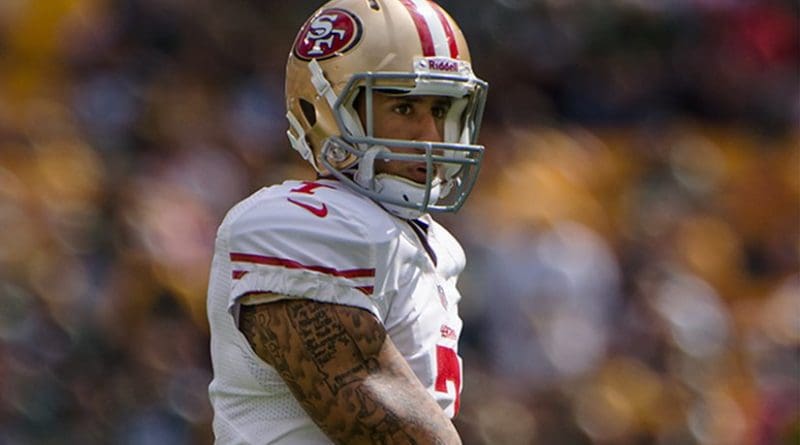The Complex Politicization Of Race And American Sports – OpEd
By Ray Hanania
Last year, American football player Colin Kaepernick started kneeling during the US national anthem before his games, claiming he could not show pride for a country that “oppresses black people.” He distorted a very complicated issue of race to make a political point about events taking place in the US. Several black teenagers were shot dead on American streets by white police officers, yet those incidents symbolize the exception rather than the rule.
Ignored in the protests against these shootings is the question of what the parents were doing or not doing in raising their children, armed teenagers wandering the streets at night, refusing to listen to police orders, or worse, using drugs. To many Americans, Kaepernick symbolizes the politicization of racism, which in the US is no longer a social disease, but a political weapon used by activists seeking to bring about radical societal change in their favor.
African Americans enjoy more freedoms today than ever before. Civil rights laws passed in 1964 gave blacks equal rights, including the right to vote, but it took decades before those laws became reality. Women continue to be the bigger victims of discrimination in America, even though laws have been passed to give them equal rights too.
The US civil rights movement for blacks and women has seen slow but steady progress. It has taken more than 200 years, something critics of Saudi Arabia should remember. Last month’s decision in the Kingdom to allow women to drive reflects a process of change that continues in America.
Kaepernick should be the last person to complain about discrimination. He was drafted by the San Francisco 49ers with a contract that promised as much as $126 million. But after an up-and-down performance he eventually left, receiving $39 million in wages and bonuses.
That is almost 700 times greater than the average annual salary of $56,000 that a typical American worker receives. And female workers receive 21 percent less on average than men for the same job, position and workload. Was Kaepernick really kneeling to make a statement about racial inequality in the US? Football, baseball and basketball are filled with African-American and other minority athletes who earn millions each year.
Most of the top athletes in America — black and white, male and female — make outrageous salaries. To see them kneel rather than show pride during the national anthem is disgraceful. If you want to make a difference and take a stand against racism, there are more effective ways to do so, such as using your wealth and influence to create employment, mentoring and education programs.
Kneeling during the national anthem is disrespectful to those Americans who lost their lives serving in the military. As an Arab-American veteran who served during the Vietnam War, I am insulted by Kaepernick’s abuse of his privilege and wealth. He is a hypocrite in my eyes, and his actions are a shameful display similar to other super-wealthy athletes, including many who have engaged in criminal activity, gambling, drugs and spousal abuse.
Not all athletes are icons of propriety. Why does Kaepernick not stand up to the immoral conduct of his sports colleagues? Last week, the National Football League (NFL) defended him and dozens of other athletes, mostly African Americans, who refuse to stand during the national anthem.
What the rest of the world is seeing is more proof that everything in America is politicized, and that issues are not driven by equality, but by special interests and power. Racism today is political too. Kneeling is not to demand equality for blacks, but to make a political statement about alleged police brutality.
There are more than 1 million police personnel in America, 75 percent of them on the streets protecting neighborhoods, black and white. How can one justify assertions of discrimination when racism involves a dozen incidents over the past year, and when in most of those cases the police offenders have been charged with crimes?
Racism today is nothing near the racism faced when black athletes Tommie Smith and John Carlos raised their black-gloved fists in the air at the 1968 Olympics after receiving their gold and bronze medals during the US national anthem. They were speaking out against racism at a time when it plagued nearly every corner of American society. Today, that disease may not have been totally eradicated, but it has been pushed into the darkest shadows of society.
Instead of kneeling during the national anthem, all athletes should stand proudly, because the US continues to fight against racism and for civil rights. If Kaepernick wanted to send a really powerful message about civil rights, he should have stood tall, put his hand over his heart, and thanked America for the privileges it has given all its athletes.

